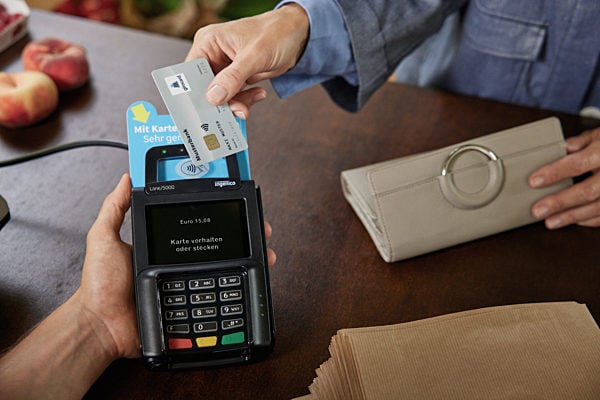Allianz shares closed 3.1 percent higher while Commerzbank finished the day 4.6 percent up.
Commerzbank and Allianz have been negotiating for months about a possible purchase of Dresdner by Commerzbank and Sunday newspaper reports say a deal may be announced as early as this week.
Allianz is likely to retain 30 percent of Dresdner after an acquisition and Commerzbank plans on also taking on the insurer’s Dresdner Kleinwort investment bank, according to Euro am Sonntag. Significant synergies are possible by firing overlapping, highly paid investment banking positions, according to the paper.
A long overdue consolidation of Germany’s banking landscape has picked up steam this year after France’s Crédit Mutuel Group agreed to buy Citigroup Inc.’s German retail banking activities for €4.9 billion.
German regulations ensure that the country’s crowded banking market offers too few customers to privately owned institutions. Laws prohibit mergers between government, cooperative and private banks and the Germans themselves prefer the appearance of safety offered by state-backed banks.
This has led analysts to call for mergers between private banks to lower per-customer costs and increase profits.
In addition to the Dresdner Bank sale, Deutsche Post is also trying to sell its Deutsche Postbank subsidiary – Germany’s biggest retail bank – most likely to Deutsche Bank while the German government last week agreed to sell its troubled IKB Deutsche Industriebank to Texas financial investor Lone Star Funds.
Munich-based Allianz paid €24 billion for Dresdner seven years ago in hopes of cross selling insurance policies and car loans. But that benefit never developed and Dresdner’s losses forced Allianz to begin shopping the bank – for a reported €8 billion.
Earlier this month Dresdner said it had slipped to an operating loss of €566 million in the second quarter.
That Commerzbank may attempt to swallow Dresdner Kleinwort is unexpected. Some reports suggested Allianz might try to sell it separately since the division’s high-powered investment bankers – fearing for their jobs – scuppered a proposed merger with Deutsche Bank eight years ago.
Neither Commerzbank nor Allianz would comment on the reports.
Allianz shares added €3.27 to close at €107.46 while Commerzbank ended the day at €20.51, €0.90 above Friday’s close.



 Please whitelist us to continue reading.
Please whitelist us to continue reading.